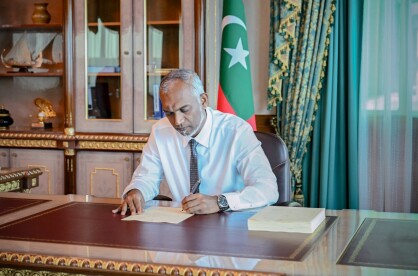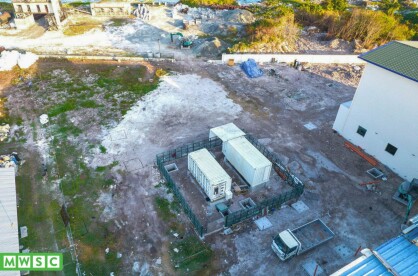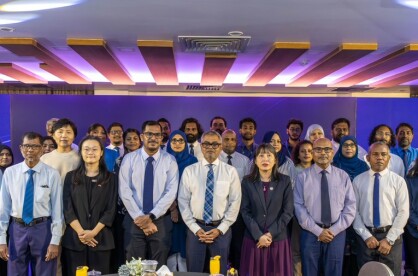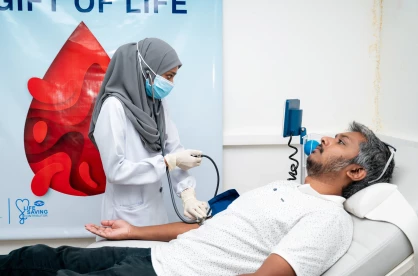Resolving medical negligence
Government needs to urgently establish a holistic framework to compensate for medical injuries.

Source: IGMH
Government needs to urgently establish a holistic framework to compensate for medical injuries.

Source: IGMH
After the tragic loss of 10-year-old Mishka, Spokesperson at the President’s Office Mabrook Azeez assured the public that those found negligent in the matter will be brought to justice. This came after a private party filed a police case on 6 June, requesting for 'criminal charges' to be brought against those found to be negligent in the case. However, according to the legal profession, this will be difficult in the Maldives due to major structural issues in the legal framework. Many are also left wondering whether the case will end up being just another one in the pile of cases where the victim’s families have been kept waiting for justice.
It took Ahmed Ihsan and his daughter more than 10 years for the Supreme Court to rule in their favour against the State and award them MVR7.1 million as compensation for medical negligence that occurred in 2007. In this historic verdict, the first where the courts ruled against the state in a medical negligence case, the Supreme court highlighted the importance of 'duty of care' by medical professionals and established three conditions that must be met to impose a 'civil liability' in these types of cases; the presence of 'malpractice,' damage to the patient, and a 'causal relation' between the malpractice and damage suffered by the patient.
It is often assumed that all malpractice by medical practitioners is negligence. However, this is not the case. Ahmed Afaal, Managing Director of ADK Hospitals said that it is often assumed that medical mishaps and incidents are negligence on the part of the practitioners. He believes that this may also be due to the way media reports such incidents in order to grab headlines. In doing so, he said, the dignity and privacy of victims are oftentimes violated.
'Medical malpractice' is defined as any act by a health-care provider during treatment of a patient that deviates from 'accepted norms of practice' in the medical community and causes an injury to the patient. 'Negligence' is defined as the failure to use care as a 'reasonably prudent and careful person would use' under similar circumstances. To put it simply, negligence involves 'not neglect or carelessness,' but failure to take such care as the circumstances demand. Hence, a doctor cannot be found to be negligent simply because one of the risks inherent in an operation actually took place and should only be found guilty when they fall short of the standards of reasonable medical care.
According to the former President of the Employment Tribunal, Ahmed Shifau, one major reason this delayed justice occurs is because there is no 'Medical Negligence Law' in the Maldives. The government has, in fact, included this bill in the legislative agenda, as a strategy to reduce more than 75 percent of medical negligence cases by 2023. However, progress on this important bill is yet to be seen and some experts have suggested incorporating this bill as a chapter of the existing Healthcare Professionals Act (2015) and the Health Service Act (2015). Similarly, some critics question how the public can ascertain if this target is really achieved, since data and information on medical malpractices are not disclosed regularly by authorities.
In the absence of such a legal framework, although the case can be filed as a 'criminal case' under the penal code to claim compensation, it is a long and arduous process, and lawyers have to refer to common laws of other developed countries in order to establish such cases. Former Prosecutor General, Muhthaz Muhsin, has said that the likelihood of winning such a lawsuit and getting a reasonable compensation is slim as evident from the handful of cases that have been won so far.
Medical doctors such as Dr. Abdulla Afeef cautioned against imposing 'criminal charges' against medical professionals since the sector is dominated by foreigners. Foreigners accounted for 64 percent of doctors and 52 percent of Allied health staff among 5,000 professionals in the health sector in 2019. This dominance is expected to increase further as the government is working to operationalize large health infrastructures in Malé and in the atolls. As such, Dr. Afeef fears that this may pose major challenges in attracting qualified foreign doctors if such litigations are criminalized and dragged on in the courts for months.

To further develop the legal framework, the government has planned additional amendments to the Health Services Act, tailored to include a 'tribunal' to hear the cases. A similar but a more comprehensive system is practiced in Singapore, where ‘mediation’ is promoted as the primary step in resolving medical malpractice disputes. This system is often referred to as the 'gentler touch' approach, since there is a shift away from an adversarial model to a more judge-led process, in which the judge will pro-actively direct the proceedings. In addition, courts have enacted protocols to encourage negotiations and the appointment of court assessors to help the court with specialized or technical issues.
According to the Maldives Medical Association (MMA), another issue which may arise due to this 'litigious culture' is the 'breakdown of doctor-patient trust' and doctors practicing 'defensive medicine.' All these would eventually feed into higher costs of healthcare as has happened in many other countries.
Litigation costs can range between 2.4 to 10 percent of health care spending in developed countries such as the United States, Japan, Denmark and the United Kingdom. It has also risen considerably over the last decade due to unnecessary tests and procedures. In the same manner, healthcare cost in developing countries such as Thailand has risen considerably due to medical malpractice lawsuits. As such, between 1996 and 2016, as the number of medical malpractice lawsuits rose sharply in Thailand, the total cost of claims also increased from USD50,000 to USD4 million.
One important policy to mitigate such cost escalations is to develop insurance tools to limit the risk exposures and to improve risk assessment systems in medical facilities. In Singapore, all public-sector doctors are insured and backed by the hospital and all doctors are required to take insurance when applying for their practicing certificates. A similar system can also be adopted in the Maldives, as insurance coverages such as Medical Malpractice Indemnity (MMI) and accidental risks is a critical component of our medical practice. Consequently, in case there is an accident or negligence on the part of medical staff, a compensation system would be in place for patients who are affected.
Lawyer Shifau also stressed that it is important that the government strengthens the functions of medical councils and other health regulatory bodies so that information sought by victim’s families and lawyers with regard to negligence cases can be provided faster. Under the Healthcare Professional Act (2015), Medical Councils are bestowed with large powers. They are however, often seen as record keepers of medical officers. More work, hence, needs to be done to establish appropriate rules and procedures in medical malpractice prevention and risk management.
A final key strategy that the government has planned is the establishment of a 'no fault compensation modality.' This is another alternative for the 'fault-based compensation' system discussed above. It is not clear, however, if the government is planning for a 'partial' instead of 'comprehensive' no fault compensation regime. This system, also known as 'no blame' compensatory regimes is practiced in New Zealand and many Nordic countries, such as Sweden, Denmark and Finland. In this system, claims falling within a predefined class of avoidable adverse events are automatically paid by a public fund (in New Zealand and Sweden) or through private resources (in Denmark and Finland), without a formal finding of negligence through the court process.
Dr. Afeef believes that this system is more efficient as it saves considerable amounts of time spent on litigation processes; a legal body assesses and provides compensation as in New Zealand where its Accident Compensation Corporation (ACC) administers and compensates for medical injuries.
The Maldives Medical Association (MMA) also supports this model, as it will 'ensure mishaps are acknowledged, responsible parties are held fully accountable.' In New Zealand, doctors are held to account under separate processes including the Medical Council of New Zealand’s competence and fitness to practice processes, an independent patient complaints system, and a separate disciplinary process.
In such systems, compensation and deterrence are decoupled, freeing doctors to participate in the compensation claims process without fear of punishment. An empirical study among OECD countries showed that this system also lowered health expenditures per capita by 0.11 percent.
Many of the government’s plans of addressing the medical negligence issue is in line with the systems in many developed countries. The broad experiences of OECD countries shows that no 'one solution' is ideal and that we need to tweak and adopt these experiences based on the Maldives’ health and social policy framework and the public expectations. Since 'actions speak louder than words,' prompt implementation of these plans are essential as medical negligence cases, like Mishka’s, affect people’s lives and emotions for long periods of time.



